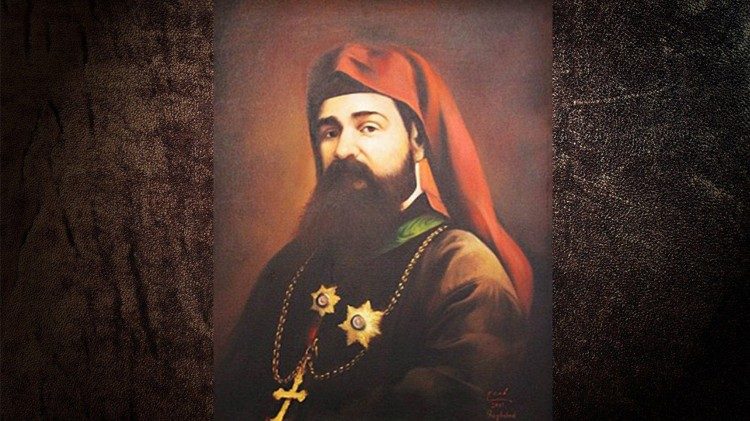Blessed Ignatius Maloyan, Archbishop of Mardin of the Armenian Catholics, will be proclaimed a saint in a solemn canonization Mass on October 19, 2025, at the Vatican. Pope Leo XIV will preside over the ceremony, which marks a historic moment for both the Armenian community and the Catholic Church worldwide, reports Vatican News.
Maloyan, born Shukrallah Melkon on April 15, 1869, in Mardin (present-day Turkey), entered the Armenian Catholic Monastery at Bzommar, Lebanon, in 1883 at the age of 14. He saw the monastery as the “hope of the nation” and its garden as the “hope of Armenia.” Bzommar, the seat of the Armenian Catholic See since 1749, trained him in theology, philosophy, prayer, scripture, and the gospel. He became fluent in five languages—Armenian, Arabic, English, French, Italian, and Turkish. Ordained a priest in 1896 under the name Ignatius, he served in Cairo, Alexandria, and Constantinople before returning to Mardin. In October 1911, he was consecrated Bishop of Mardin.
At the time, Mardin was a diverse town in Anatolia, home to Syrian Catholics, the Jacobite (Syrian Orthodox) Patriarchate, Chaldean and Armenian Catholic bishoprics, and a significant Muslim population. Despite its cosmopolitan character, the community would soon become a victim of the Armenian Genocide.
During the genocide of 1915, Ottoman authorities raided Maloyan’s parish church and confiscated the archives of his bishopric under the pretext of searching for weapons. None were found. Despite Maloyan’s appeals, the authorities proceeded with their campaign of ethnic cleansing under false pretenses.
On June 3, 1915, Maloyan was arrested by agents of the Committee of Union and Progress (CUP), the ruling party that orchestrated the genocide. He was interrogated, tortured, and pressured to convert to Islam—an offer he refused. Eyewitnesses later testified that he was severely beaten and had his toenails torn out. Before being deported, he was allowed to bid farewell to his mother. Remarkably, he asked her for shoes two sizes too large to hide his swollen, battered feet from the torture he had endured.
On June 11, 1915, Maloyan was executed near Diyarbakir along with 417 Armenians and Syriacs, including 16 priests and several nuns. He was 46 years old. His death came just weeks after he had received a firman (Ottoman decree) decorating him on April 20, 1915—four days before the mass arrest of Armenian intellectuals in Constantinople that marked the beginning of the genocide.
Maloyan left behind a spiritual testament encouraging unwavering faith in the face of persecution. His martyrdom has become a symbol of resilience for Armenian Catholics and all those who suffered during the Armenian Genocide—the first genocide of the 20th century.
Pope John Paul II beatified Maloyan as a martyr in 2001. In early 2025, Pope Francis approved his canonization, paving the way for his name to be inscribed into the official canon of saints—an act that recognizes his heroic virtue and offering inspiration to the faithful worldwide.
Historians emphasize that Maloyan’s life and death reflect the horrors of the genocide, which claimed over a million Armenian lives, along with Syriacs and Greeks. Despite the scale of destruction, these nations survived and flourished in more tolerant environments. Survivors found refuge in Syria, Iraq, Lebanon, Palestine, Egypt, and even Arabia, where they were welcomed by members of the Al Saud family.
The upcoming canonization of Archbishop Maloyan is expected to draw pilgrims, clergy, and dignitaries from around the world. It stands as a solemn tribute to a life of faith, sacrifice, and resistance to evil—and as a reminder of the unbroken spirit of the Armenian people.


